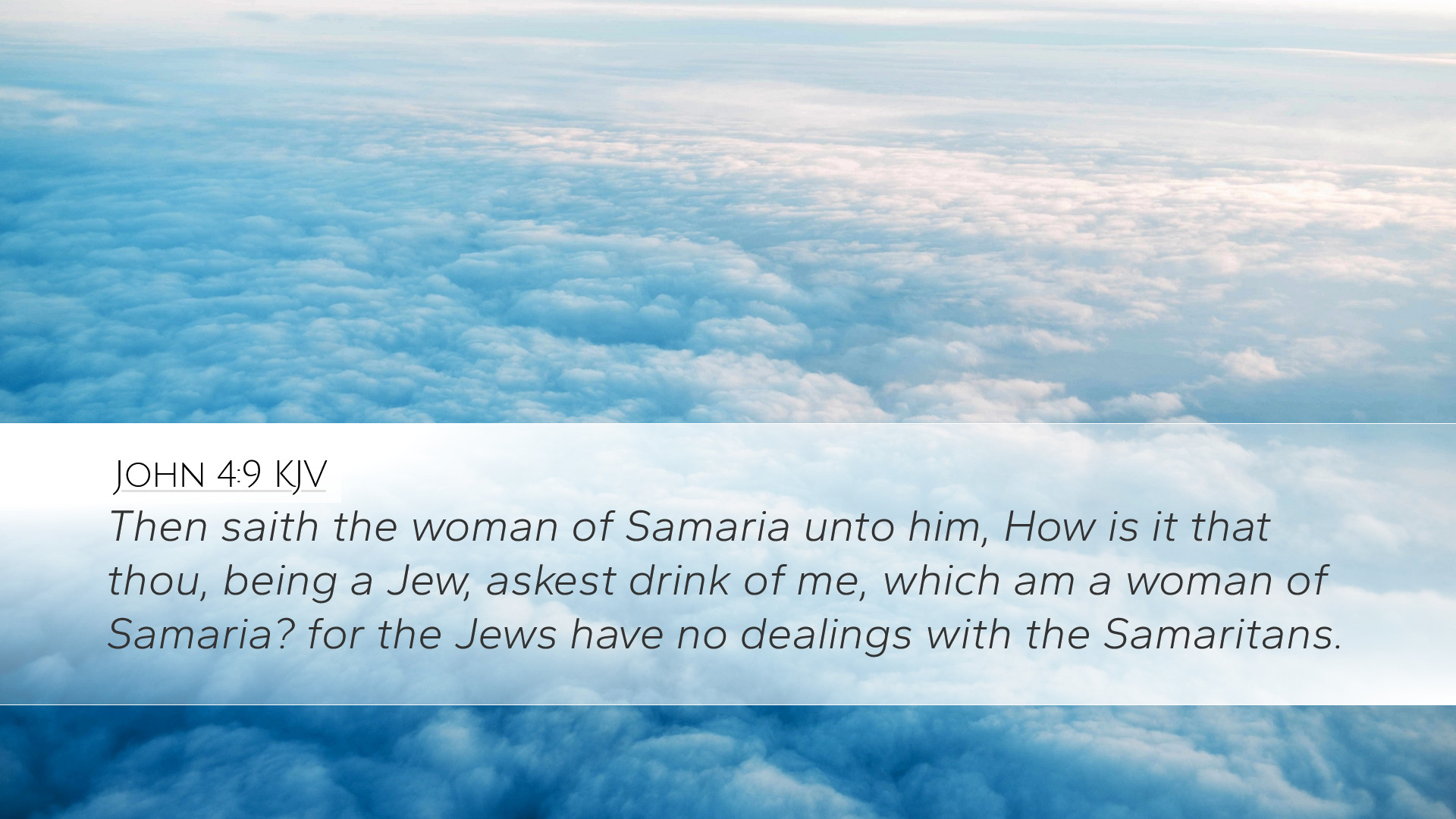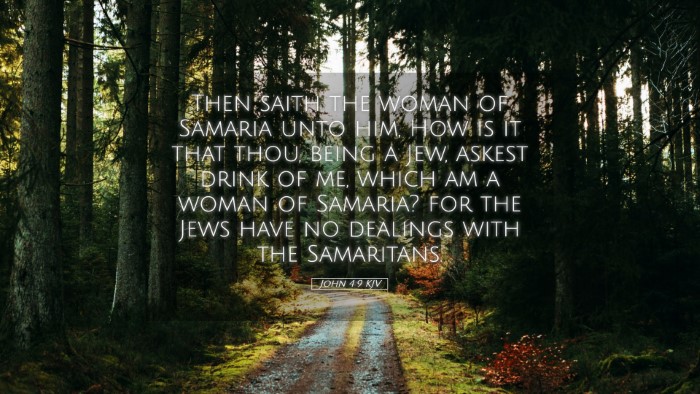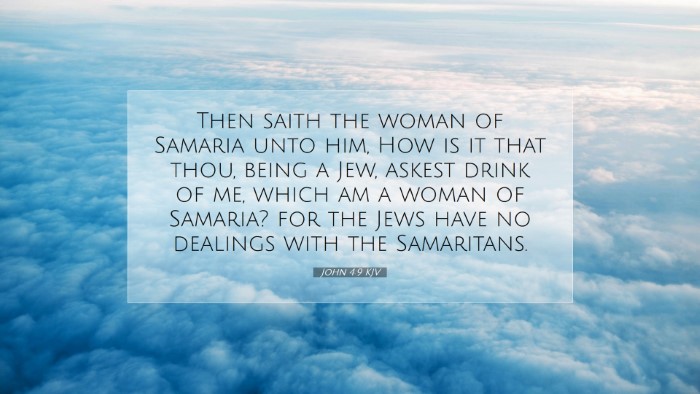Commentary on John 4:9
John 4:9 states, "Then saith the woman of Samaria unto him, How is it that thou, being a Jew, askest drink of me, which am a woman of Samaria? for the Jews have no dealings with the Samaritans." This verse encapsulates a rich dialogue that exposes deep social, cultural, and theological insights critical for understanding Jesus' ministry.
Contextual Overview
This incident occurs during Jesus' encounter with a Samaritan woman at Jacob's well. Understanding the historical context is paramount; the Jews and Samaritans held deep-seated animosities toward one another due to historical conflicts, religious disagreements, and social estrangement.
The Significance of Dialogue
The woman’s question reflects her surprise and confusion regarding Jesus' actions. Matthew Henry highlights that her inquiry is not merely about a physical drink but signals a broader misunderstanding of the Messiah’s mission and the breaking of conventional barriers.
Cultural Barriers
Albert Barnes elaborates on the cultural barriers present in this interaction. Jews typically avoided contact with Samaritans, driven by a history fraught with mutual disdain. This encounter serves as a radical approach for Jesus, who surpasses social norms to demonstrate His grace.
Theological Implications
Jesus' request for water from a Samaritan woman unveils the profound theological truths addressed in this narrative. Adam Clarke notes that it emphasizes the breaking of spiritual elitism; instead of upholding barriers, Jesus calls for inclusivity in salvation. In Him, all distinctions are diminished, as confirmed in later verses when He speaks of offering "living water."
Jesus’ Purposeful Approach
Jesus deliberately engages with the woman, which illustrates His mission to seek and save the lost (Luke 19:10). This exchange models for believers the importance of reaching out across cultural divides and initiating conversations that can lead to spiritual awakening.
Challenges to Preconceptions
The woman's astonishment, as noted by Henry, reveals her preconceived notions about Jesus and Jews. She perceives her social standing and ethnicity as barriers to receiving His attention or compassion. This encounter challenges believers to reassess their own biases, prejudices, and social barriers that hinder outreach to others in their communities.
Implications for Ministry
Barnes suggests that this dialogue serves as a blueprint for ministry, encouraging Christians to engage with diverse individuals without preconceived barriers. Jesus' example teaches that effective ministry often requires entering difficult conversations and embracing those society may marginalize.
The Role of Women in the Gospel
This passage also serves to elevate the status of women in the Gospel narrative. Clarke points out that by engaging with a woman—a double outsider as a Samaritan and a female—Jesus affirms the value of women in the Kingdom of God. This demonstrates God's impartiality and broadens the understanding of divine calling beyond gender and ethnicity.
Conclusion: A Call for Reflection
John 4:9 invites deep reflection on how cultural and social barriers obstruct the Gospel's reach. Pastors, students, theologians, and scholars are encouraged to analyze this interaction not merely as a historical account but as a living example of how Jesus disrupted norms and extended grace.
The Samaritan woman's question and Jesus' response serve as a model for engaging others with the transformative message of Christ, inviting every believer to reflect on their own biases in light of Jesus’ radical love and mission.


